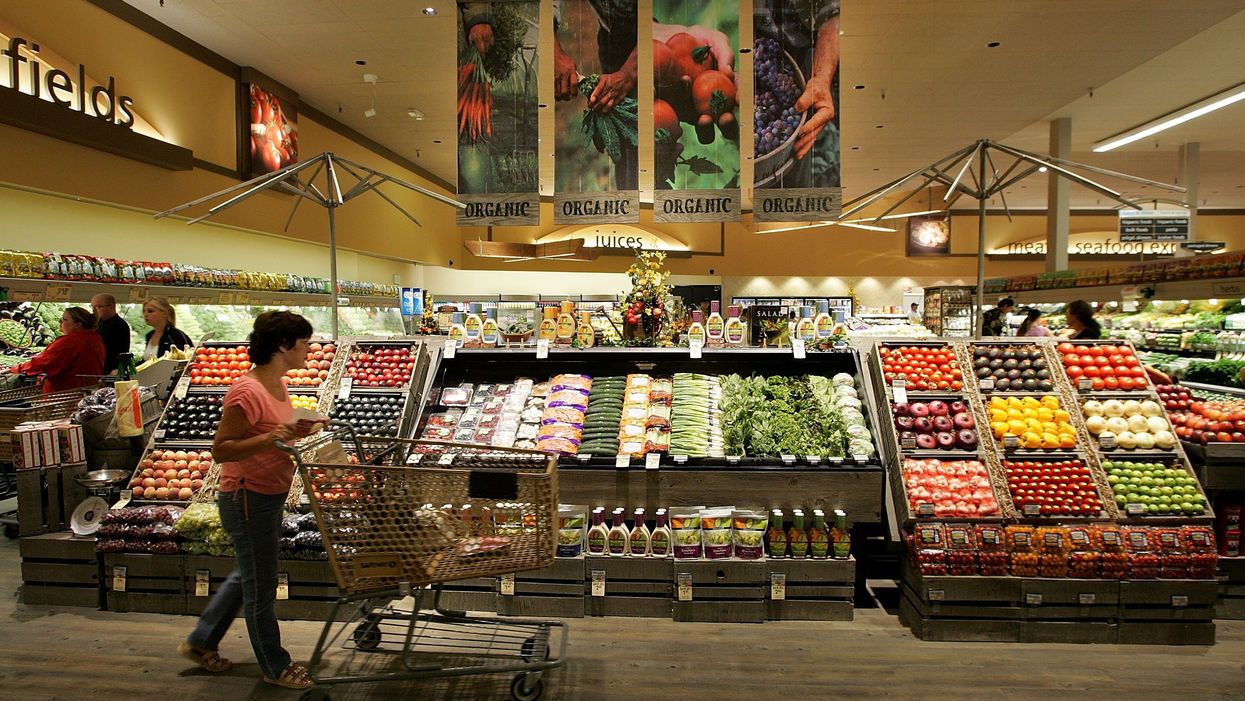
Photo by Justin Sullivan/Getty Images

Conflicting information
The Food and Drug Administration announced Thursday that consumers don't have to worry about contracting the coronavirus from grocery packaging.
However, the Centers for Disease Control and other experts say the opposite.
In a release on its website, the FDA wrote, "We want to reassure consumers that there is currently no evidence of human or animal food or food packaging being associated with transmission of the coronavirus that causes COVID-19."
The organization does not cite the evidence — or, in this case, lack of evidence — to support its claim.
It goes on to note that while the COVID-19 virus is spread from person-to-person contact, it cannot be spread through "contaminated food."
"This particular coronavirus causes respiratory illness and is spread from person-to-person, unlike foodborne gastrointestinal or GI viruses, such as norovirus and hepatitis A that often make people ill through contaminated food," the release added.
The organization does not address, however, whether the virus is transmissible from contaminated surfaces, such as plastic milk cartons or cardboard pasta boxes.
It does note, though, that shoppers should wash their hands when they return home from the grocery store, and then once more after putting away the groceries.
"Wash your hands with warm water and soap for at least 20 seconds when you return home and again after you put away your groceries," the release continued.
It also offers up the idea of wiping groceries down anyway — just as a precaution.
"If you wish, you can wipe down product packaging and allow it to air dry, as an extra precaution," it concluded.
CNN's Dr. Sanjay Gupta, for one, says that while it's not necessarily likely that consumers can contract COVID-19 from grocery parcels, it's not unreasonable to take the proper protective precautions.
"It's very unlikely you're going to get it from packages, but we do know that the virus can live on surfaces, for example, steel and plastic for up to three days. ... We know it can live up on cardboard for 24 hours."
He later added, "Respiratory droplets that are in the air, you can touch surfaces and then you touch your eyes, nose, or mouth. I think it's a very low likelihood ... but being cautious is a good idea."
The CDC also notes, "[T]ransmission of novel coronavirus to persons from surfaces contaminated with the virus has not been documented."
"Current evidence suggests that SARS-CoV-2 may remain viable for hours to days on surfaces made from a variety of materials," the organization added.
Researchers at the University of Alabama at Birmingham say that the virus is "more stable" on surfaces like plastic — a common food container material — and steel when compared to more porous surfaces like paper or cardboard.
"Viable virus was detected for up to three days on plastic and stainless-steel surfaces," one researcher said. "While on copper, no viable virus was measured after four hours or on cardboard after 24 hours."
Dr. Jodie Dionne-Odom, who is assistant professor in UAB's Division of Infectious Diseases, adds, "Packages will be coming from a number of hands, and you might not know the symptom status of everyone who touched it along the way. Wash your hands after opening and handling the package. That will kill the germs."
Harvard University Medical School also advises to take the safer road.
"Recent studies have shown that the COVID-19 virus may remain on surfaces or objects for up to 72 hours," researchers write. "This means virus on the surface of groceries will become inactivated over time after groceries are put away. If you need to use the products before 72 hours, consider washing the outside surfaces or wiping them with disinfectant. The contents of sealed containers won't be contaminated."
"After unpacking your groceries, wash your hands with soap and water for at least 20 seconds," researchers advise. "Wipe surfaces on which you placed groceries while unpacking them with household disinfectants."
Wipe down your groceries as well as your counters after grocery shopping — and then wash your hands for at least 20 seconds.
It's better to be safe than sorry.